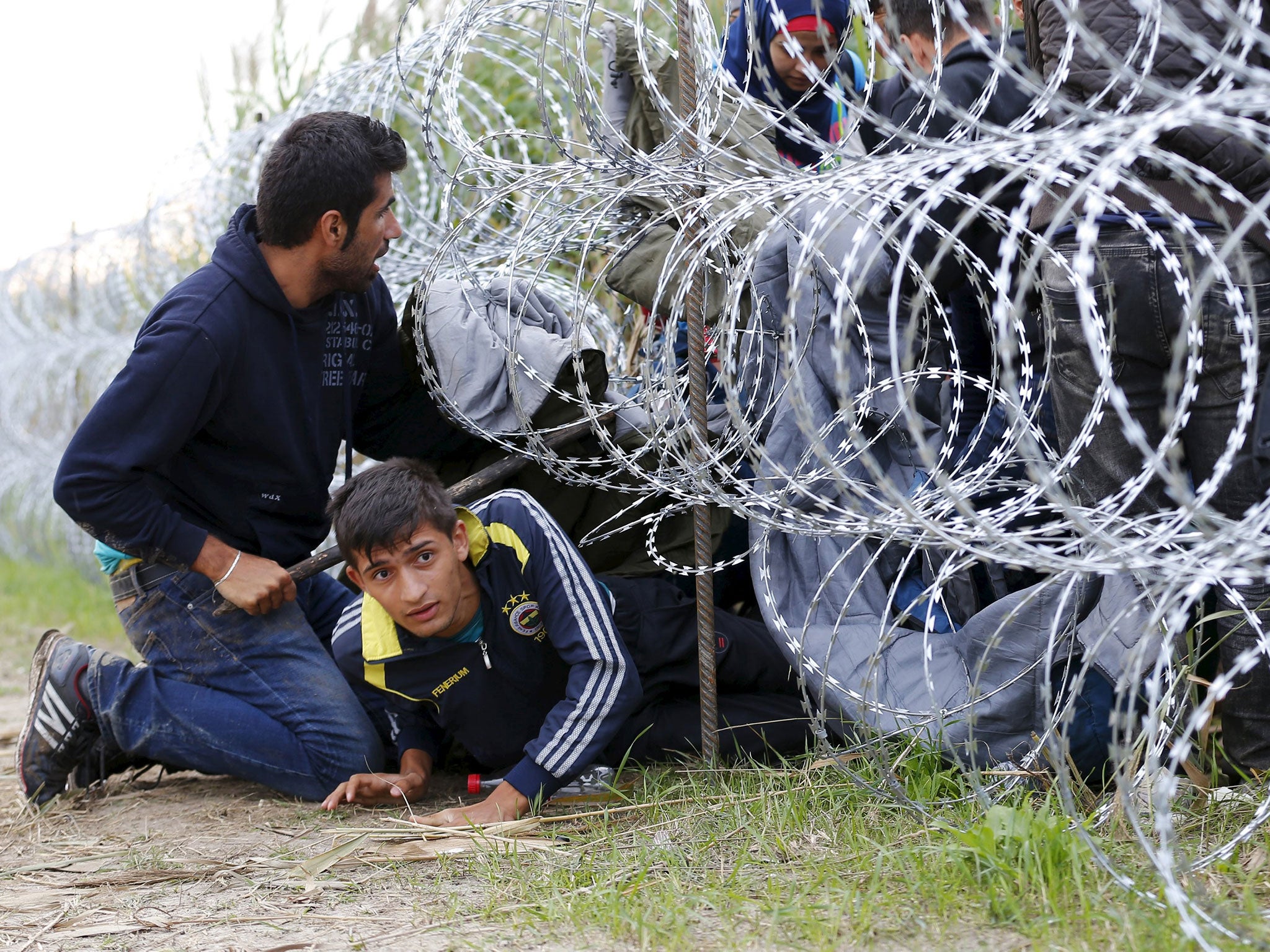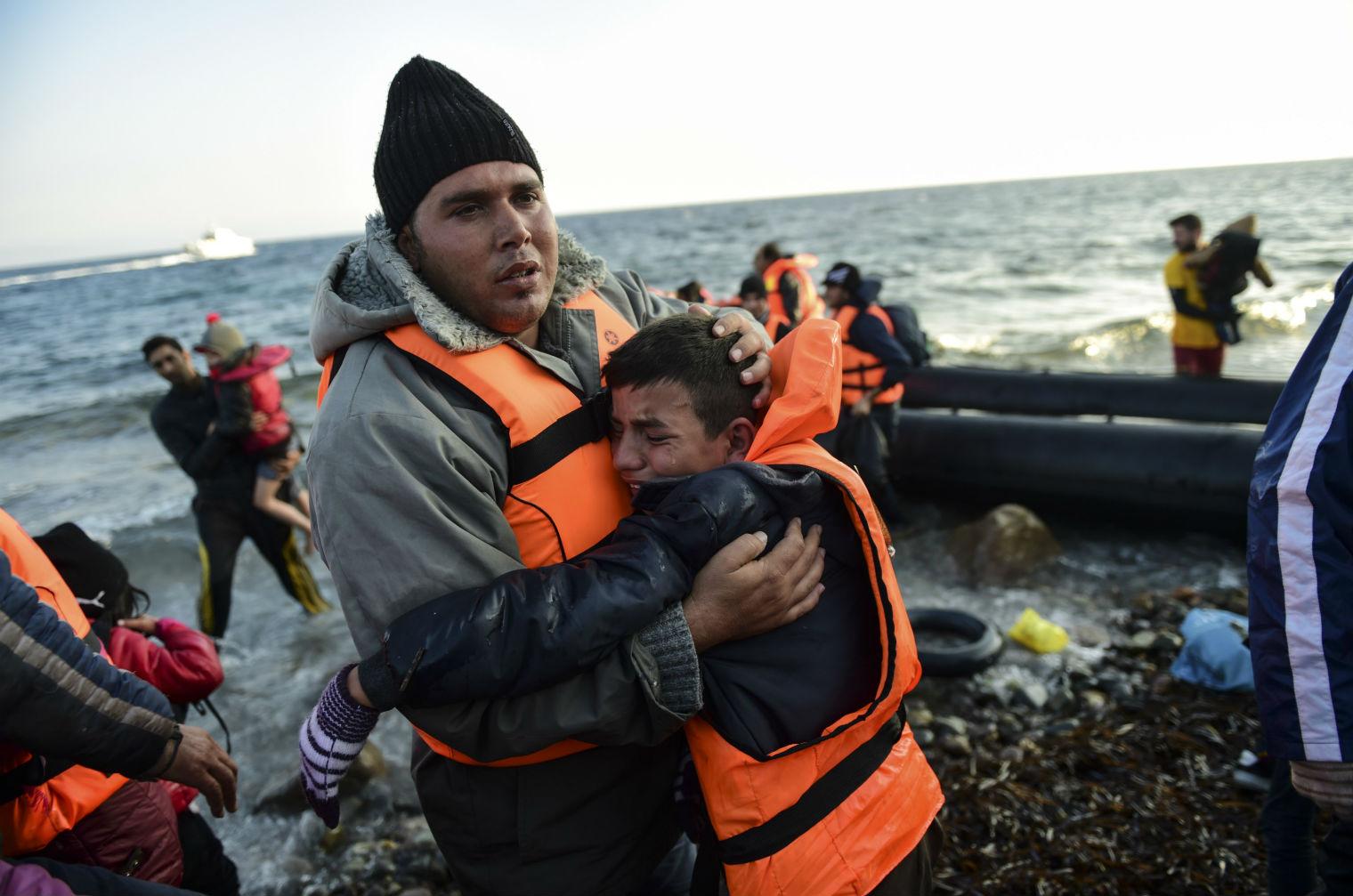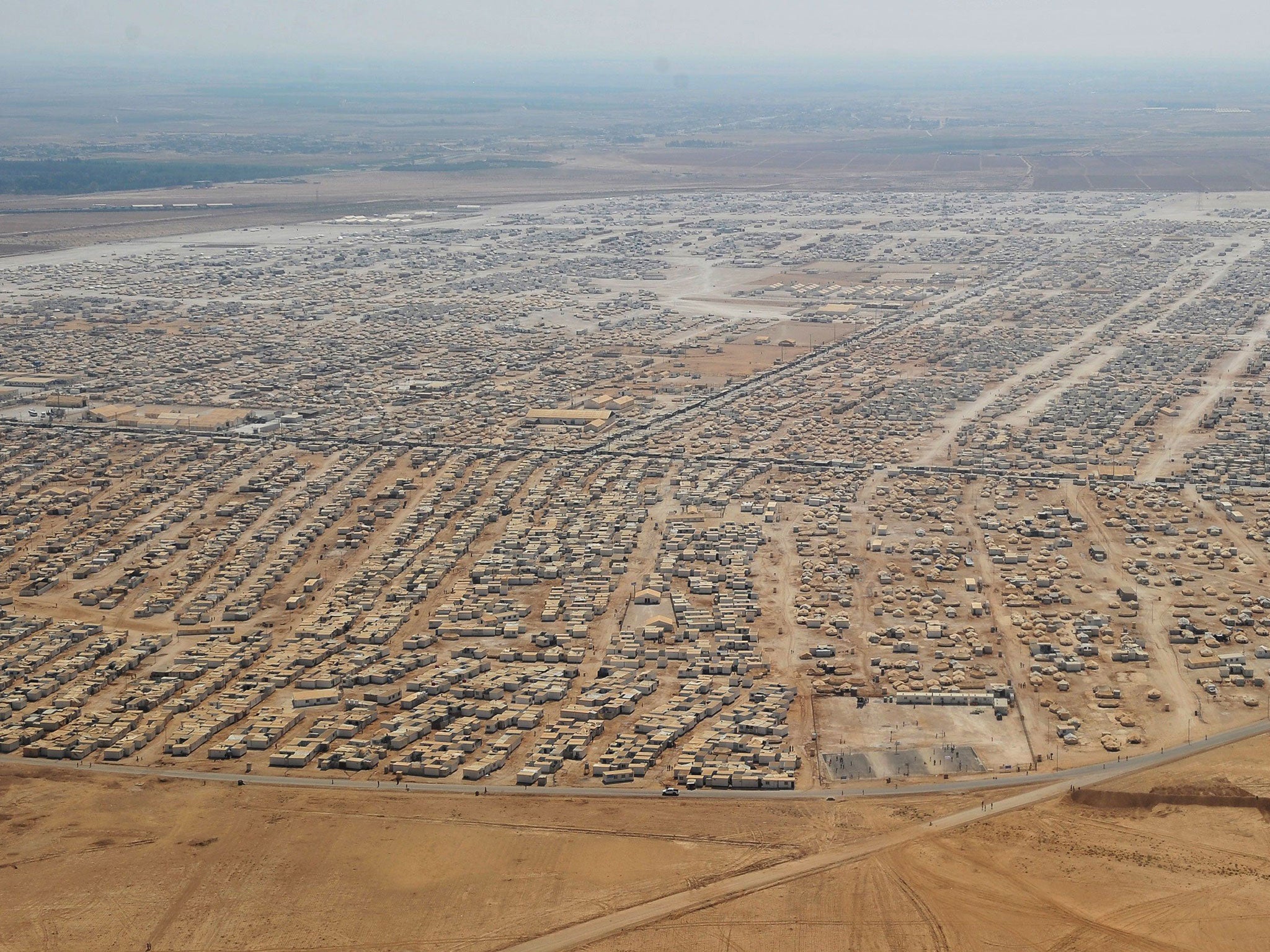Refugee crisis: Fences failing to stop asylum seekers arriving in Europe as migrants take covert routes
Almost 900,000 asylum claims expected in 2016 despite border controls and EU-Turkey deal

Europe’s efforts to stop the refugee crisis are failing to significantly reduce the number of people seeking asylum as migrants are forced on more dangerous and covert routes, a report has found.
The Overseas Development Institute (ODI), a UK-based independent think tank, predicted that almost 900,000 asylum applications will be lodged this year, compared to 1.26 million in 2015.
Leaders have hailed the apparent success of the EU-Turkey deal to stop crossings over the Aegean Sea and vowed to tackle people smuggling in Libya, while Hungary and Slovenia have erected vast fences along their borders and the UK is constructing a new wall in Calais.

But analysts warn the measures are not stopping the refugee crisis but worsening it, pushing desperate men, women and children from “overt” to “covert” routes that are even more difficult to trace.
Marta Foresti, interim executive director of the ODI, told The Independent the dramatic reduction in sea crossings to Europe – standing at more than 165,000 so far this year – does not tell the whole story.
An estimated 60 per cent of refugees and migrants are now arriving via hidden routes, almost double the proportion in 2015, making the flow more difficult for authorities to control.
“We don’t know how they made it to the EU,” Ms Foresti said. “The real risk is that by having this crisis mode reaction and being seen to erect borders, more people are coming by covert routes and governments are even less capable of controlling and monitoring the phenomenon.”
“Overt” routes are sea crossings to Italy, Greece, Malta and Spain, while more hidden channels being used include land crossings hidden in smugglers’ vehicles from Albania to Greece, and via Russia, Belarus, Moldova and Ukraine.
Other covert methods include travelling by plane using false documents, or over-staying visas.
The ODI's report concluded that the €1.7 billion (£1.4 billion) spent by European countries on border controls on deterrent measures and further €15.3 billion (£13 billion) plunged into bilateral agreements and aid aiming to reduce the flow has had only a limited effect.

Like countless humanitarian groups, the institute is calling on more safe and legal pathways to Europe to be opened for refugees.
“It comes across as pretty radical in the current political context but it is a way governments could better monitor the flows and properly register migrants,” Ms Foresti said.
“This is about solidarity and humanity, but it is also pragmatic.”
The findings come as world leaders prepare for the United Nations General Assembly in New York next week.
A UN Summit on Refugees and Migrants on Monday will be followed by a separate summit on the issue hosted by Barack Obama the following day.
Human rights groups have been raising concern about the EU-Turkey deal, which sees all migrants arriving on Greek islands detained in camps and threatened with deportation if their asylum claims fail.
Oxfam warned millions of refugees are being forced to flee to countries ridden with conflict and insecurity, facing a struggle to access employment, healthcare and education while being left vulnerable to violence and abuse.
Almost four million refugees and asylum seekers – almost 16 per cent of the world’s total – have swapped one warzone for another, the a new report by the charity has found.
Almost 290,000 refugees entered Iraq last year, where the government is fighting Isis’ insurgency, while more than 270,000 fled to Yemen – divided between rival governments, Isis and al-Qaeda in a bloody civil war.
Yasser al-Jassem, a Syrian refugee who was hunted by Bashar al-Assad’s regime for deserting the army before being targeted by Isis militants who killed his brother, said Jordan and Lebanon were also unsafe because of the presence of regime soldiers and extremists.
He now lives in Manchester with his wife and two-year-old daughter after reaching the UK via Turkey, Greece and Calais.
“In Lebanon and Jordan the situation for refugees is miserable, it’s not safe,” Mr al-Jassem said.
“When I passed the Turkish border I started crying.
“When I see Damascus I feel very sad. I don’t want to stay in Europe, I just want a safe place for a while and then we go back to Syria.
“I love my country, I love my city, I love my family and friends and I want to go back.”

Maya Mailer, Oxfam’s head of humanitarian policy, accused the UK and other European nations of “outsourcing borders” and shirking their responsibility towards refugees.
“Passing the buck seems to be the general trend,” she added. “Asylum is a right under international law and it’s being eroded.”
Mark Goldring, the chief executive of Oxfam GB, said the fact that so many refugees have been fleeing to other conflict zones show how limited their options are.
”Families who have already been traumatised and torn apart and children who are travelling on their own deserve the chance of a safer future,” he added.
“At a time when the world is coming together to try to find solutions to this crisis, it is profoundly important that the UK honours its proud history of helping refugees and shows the world we're willing to play our part.”
The charity is also calling for legal routes to be opened for refugees and for global efforts towards a more comprehensive strategy on migration, as increased transparency on the cost of attempted deterrents.
Ahmad al-Rashid, a refugee from Aleppo, said Syrians felt abandoned by the international community after taking in hundreds of thousands of people fleeing previous wars in Iraq and Afghanistan.
“It’s a global responsibility now – it’s not just for Lebanon or the UK or the US,” he said.
“This crisis isn’t going to go anywhere soon and we won’t know what is going to happen next.”
Join our commenting forum
Join thought-provoking conversations, follow other Independent readers and see their replies
Comments